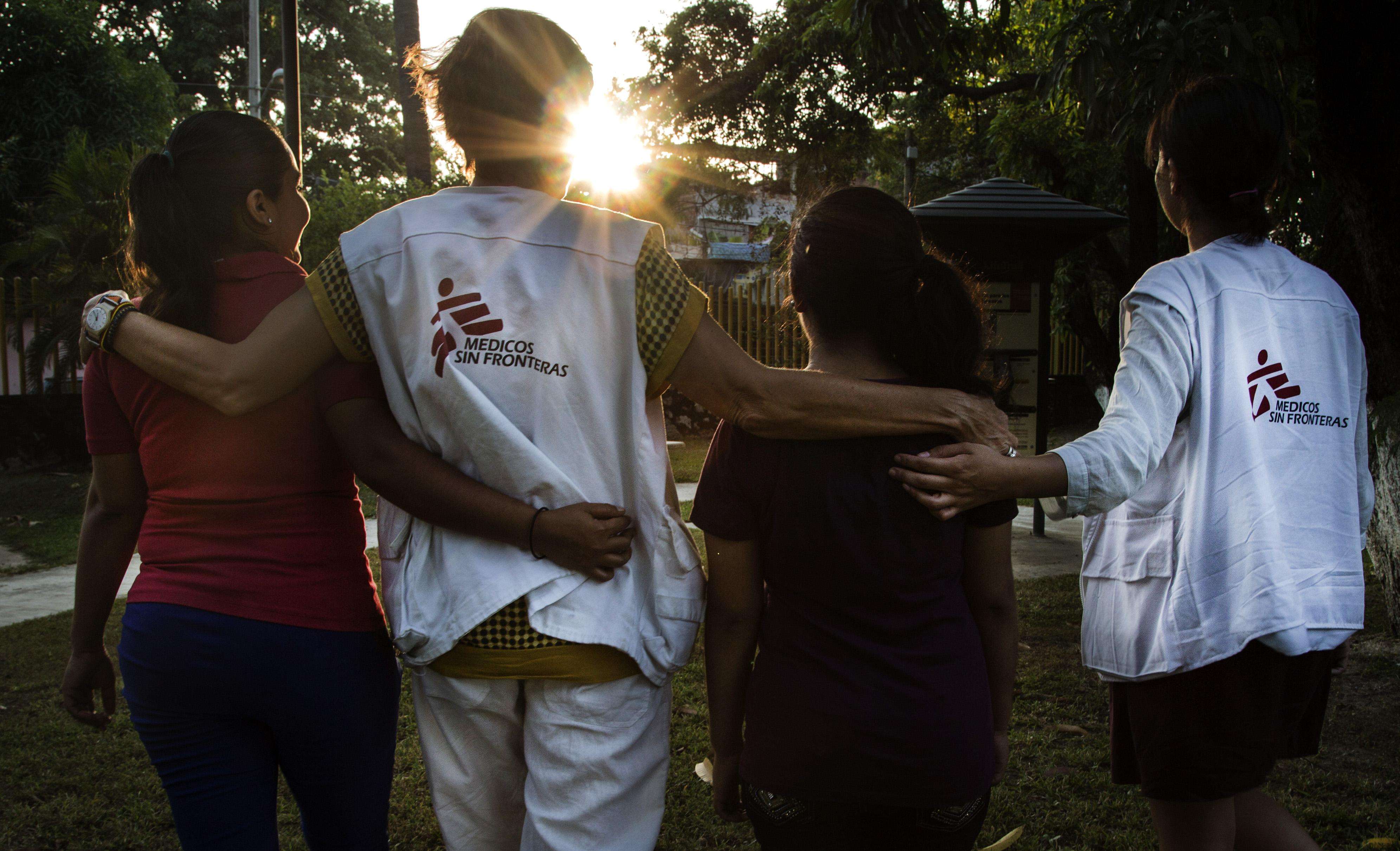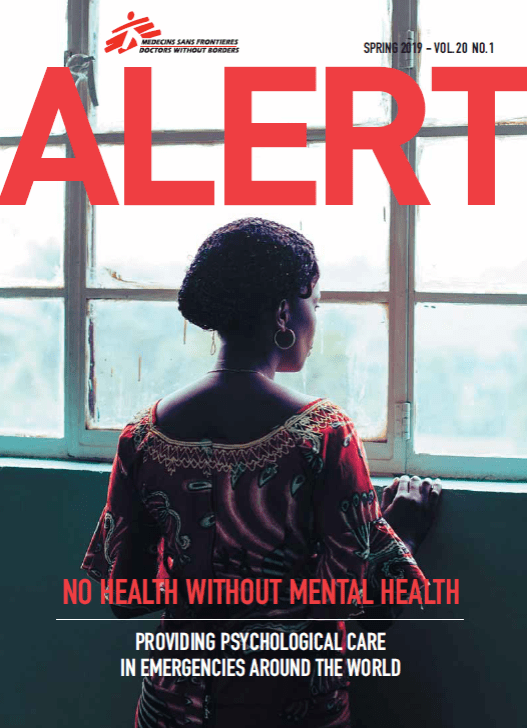Athena Viscusi is a clinical social worker and part of MSF’s Psychosocial Care Unit (PSCU), a group of mental health care workers who have worked internationally with MSF and now focus on psychosocial care for MSF staff.
What are the potential risks to humanitarian workers’ mental health and how does MSF address them?
Before MSF staff members leave for their first assignment, we work with them to prepare so they can avoid falling prey to the most common risks to mental health. Burnout, for example, can happen if you’re working in emergency situations, with many obstacles, for long periods of time, and with long hours. It can happen when the amount of stress that you’re exposed to surpasses your coping mechanisms.
We talk about the stresses people are going to encounter, and I tell them that it’s part of their job to take care of themselves as they are caring for others. We talk about having a plan when they’re unable to rely on their usual coping mechanisms—if they usually run five miles a day to relieve stress, but they are going to be confined to a compound, what are they going to do instead? Another big part of preventing burnout is keeping up strong social connections, with both friends and family at home and their MSF colleagues. This will help people deal with stress during their assignment, and, when they get home, it will help them readjust to a very different life.
Another important prevention measure is the training of supervisors to recognize the signs of mental distress and connect their staff with us, the psychosocial teams.
What about traumatic events that you can’t prepare for?
Infrequently, international staff can experience direct exposure to a traumatic event—this would be if you were directly attacked or threatened, or directly witnessed violence or suffering. Traumatic memories like these tend to stay with us unless we address them.
Furthermore, secondary exposure to trauma can occur when a staff member experiences trauma through a patient, hearing some really horrible stories on a daily basis. Sometimes, MSF sends psychologists to our projects to counsel both local and international staff in the event of a traumatic incident, or if teams are dealing with particularly stressful stories day after day. And counseling is always available by phone or videoconference. When international staff come home to the US, we can connect them to a therapist where they live. For local staff, where it’s possible, we can hire local psychologists to provide ongoing support.
Most returning international staff members report their experience as positive, and many talk about how it has changed them. Some have had difficult experiences before working with MSF, and helping others restores meaning and fulfillment for them. Turning adversity into opportunity is what we call “post-traumatic growth.”





